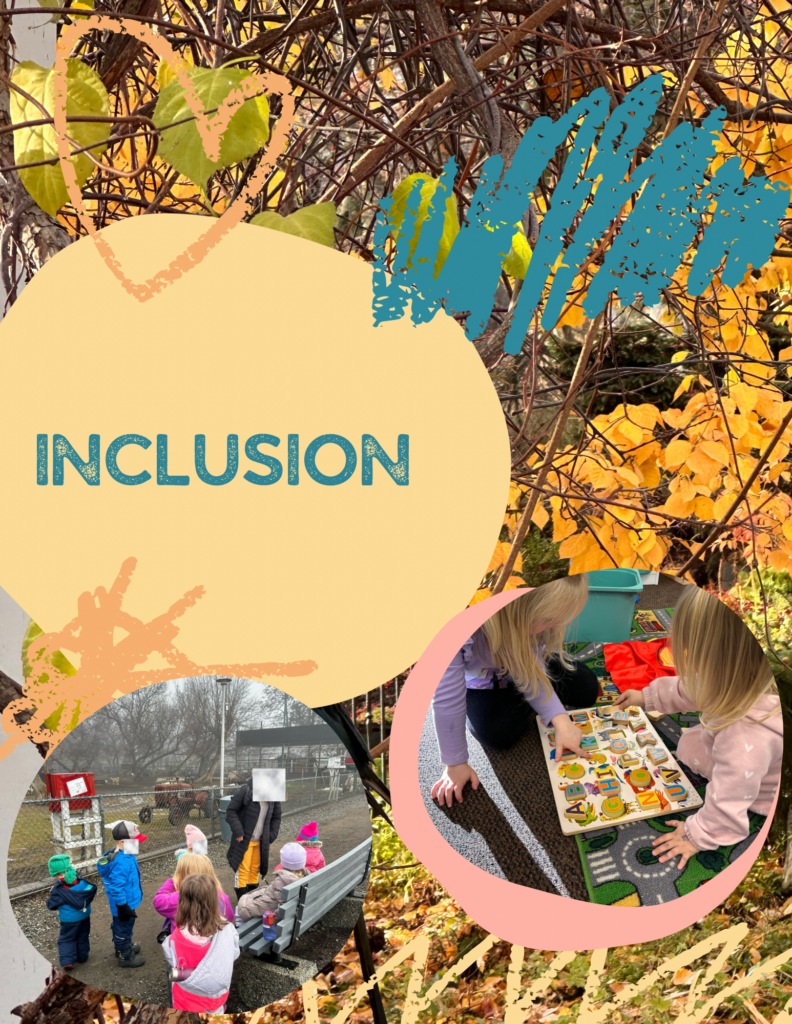
Inclusion in First Peoples Principles of learning
“ Learning is holistic, reflexive, reflective, experiential, and relational (focused on connectedness, on reciprocal relationships, and a sense of place).” – BCELF FPPL
“ Classrooms and early care and learning settings are welcoming, inclusive, and enriching places where every child and family feel they belong.” – BCELF LFP
Both principles values the importance of inclusive classrooms where everyone no matter what your socio-economic status, gender, sexuality, ethnicity, abilities and learning needs should be welcomed and empowered. As an educator, this principles is well connected to me as I grew up being the only Asian student in my class. I want to empower the importance of inclusive education/classroom/environment on my journey as an early childhood educator.
Question
“ What is the vision of inclusion for educators to discover each child uniqueness?”
Commitment
I commit to remain the teacher with unbiased thoughts regarding each child’s uniqueness. Openness to developing as a teacher via knowledge, insight, and feedback. If other instructors are sharing their own viewpoints, it will be easier for me to establish an inclusive space that everyone is happy with. I will also provide inclusive, enjoyable, and meaningful curricula for kids.